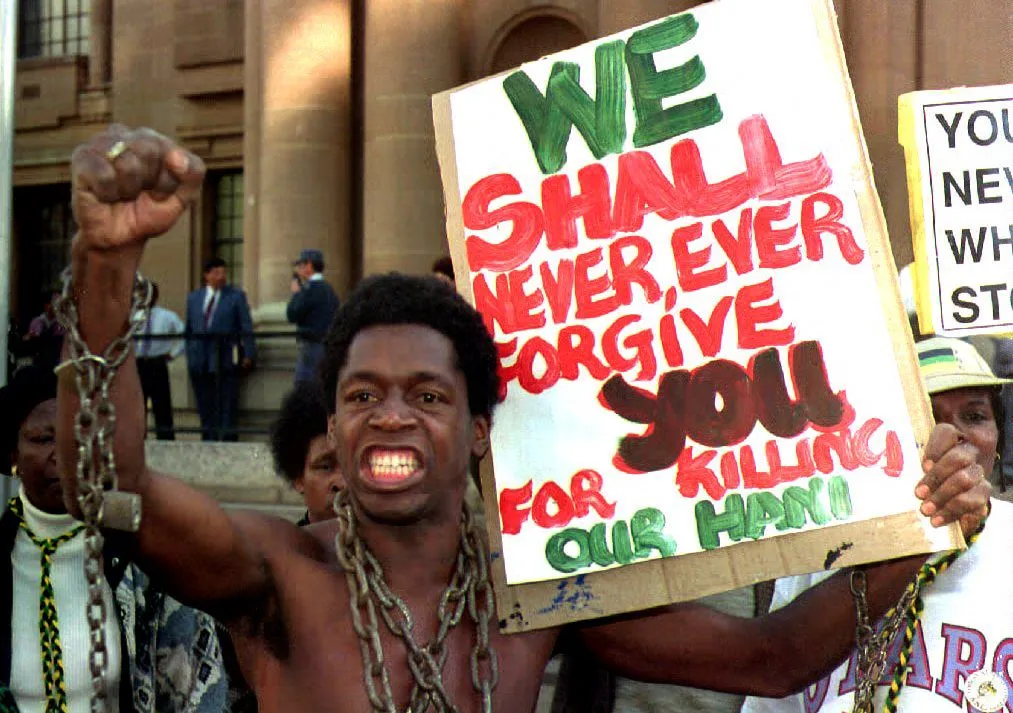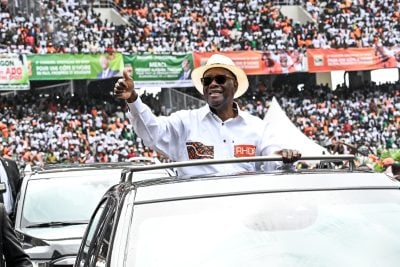As South Africa reached for the prize of a democratic dispensation that would see the abomination of apartheid defeated, an assassination intended to sabotage the process was carefully planned.
The assassin was a Polish white supremacist, Janusz Waluś. His victim was Chris Hani, leader of the South African Communist Party, and a widely-loved ally of ANC leader Nelson Mandela.
Waluś was no “lone-wolf”. His mentor, the former Conservative Party MP and member of the state president’s council Clive Derby-Lewis, was a fellow extremist dedicated to apartheid.
Derby-Lewis had arranged for a silencer to be fitted to the gun that killed Hani and for it to be supplied to Waluś. It seems that Waluś had initially been “scoping”’ Hani’s home and surroundings when the opportunity to kill his victim presented itself.
Hani was at home on the morning of 10 April 1993 with his 14-year-old second daughter, Nomakhezi. His eldest daughter, Neo, was in Cape Town, and his wife, Limpho, and their youngest daughter Lindwe were visiting relatives in Lesotho.
After Hani rose, he took a cup of tea before setting off for a jog. On returning to the house he made his bed and decided to drive to a nearby store to purchase a couple of newspapers.
Waluś followed his quarry to the store and it was then that he made the decision to kill him. Waluś managed to get back to Hani’s house before him. With four shots, two to drop his man, and two at close range as a coup de grâce, Waluś’ cold-bloodedly executed Hani on the driveway of his home.
A plan for chaos
This assassination had not only been planned to eliminate Mandela’s close colleague. It was also intended to plunge the country into violent chaos as a response – and thus to sabotage the negotiations that the ANC and the government had entered into.
Having detailed the brutal crime, in The Plot to Save South Africa: The Week Mandela Averted a Civil War and Forged a New Nation esteemed South African journalist Justice Malala constructs a timeline that outlines the key events that followed the April 1993 killing of Hani.
What both Derby-Lewis and Waluś had been counting on was that the townships would erupt in violent fury at Hani’s death. Thus, they hoped, the move towards the country’s liberation from apartheid would be scuppered.
They were right in one thing: Hani’s death on that holiday weekend unleashed a wave of fury among the youth of the black townships.

Cooler heads, though, realised the motive for gunning down Hani – and feared the liberation fighters’ understandable anger and actions would provide the perfect pretext for apartheid’s apologists to let loose a backlash of brutal repression.
How the major players responded to Hani’s death in order to save the negotiations can be seen as the “plot to save South Africa” that the book’s title refers to. But there is another interpretation: there was a “plot” by right-wing racists to “save” South Africa, in their warped imagination, by assassinating senior ANC figures to derail the transition to a majority, democratic government. An extremist hit- list also included Mandela and Joe Slovo, Hani’s predecessor as general secretary of the South African Communist Party.
Nevertheless, Mandela and his closest comrades were able to rein in those that were determined to seek violent revenge, and were even able to help avert the very real possibility that the state president, FW de Klerk, might be unseated by the die-hard white supremacists that were still in his cabinet.
Mandela’s moment
At such a fraught moment it was Mandela’s foresight, generosity of spirit and unparalleled ability to speak to the soul of the nation that helped to prevent the country from falling headlong into the abyss.
In a stirring appeal, a heartbroken Mandela asked all South Africans to reflect on the enormity of the crime and its transparent attempt to destroy the nation’s social fabric.
“Tonight I am reaching out to every single South African, black and white, from the very depths of my being,” he said. “A white man, full of prejudice and hate, came to our country and committed a deed so foul that our whole nation now teeters on the brink of disaster… Our grief and anger is tearing us apart.”
Next, he appealed to black and white to pull together in a moment of profound crisis: “Now is the time for all South Africans to stand together against those who, from any quarter, wish to destroy what Chris Hani gave his life for – the freedom of all of us. Now is the time for our white compatriots, from whom messages of condolence continue to pour in, to reach out with an understanding of the grievous loss to our nation, to join in the memorial services and the funeral commemorations.”
Finally, and crucially, he called on those bent on vigilante reprisals to avenge Hani to stand down:
“This is a watershed moment for all of us. Our decisions and actions will determine whether we use our pain, our grief and our outrage to move forward to what is the only lasting solution for our country – an elected government of the people, by the people and for the people. We must not let the men who worship war, and who lust after blood, precipitate actions that will plunge our country into another Angola… Any lack of discipline is trampling on the values that Chris Hani stood for. Those who commit such acts serve only the interests of the assassins, and desecrate his memory.”
FW de Klerk’s ambiguity
Malala makes it clear that it was Mandela’s defiant public display – as well as his behind-the-scenes manoeuvring – that was key to pulling the country back from the brink of civil war in the days after Hani’s murder.
But he also dwells on the more ambiguous role of FW de Klerk, the white president, who, as the primary representative of a hated regime, lacked the ability to bridge the racial divide in the same way as Mandela.
Despite the fact that de Klerk had steered the South Africa government towards a peace process, Malala makes clear that, with the death of Hani, de Klerk knew that his balancing act was facing real danger with the possibility of a political challenge from the far right.
That precarious position led FW de Klerk to sidestep the awkward questions of his party’s complicity in the murder – not only its primary role in advocating for permanent racial segregation, but its role as a political breeding ground for future extremists like Derby-Lewis, the one-time National Party man.
Indeed, FW de Klerk’s inability to use Hani’s murder to launch a true moral reckoning dovetails with the longstanding argument that his motivation in bringing apartheid to an end was less about altruism and more about the interest of his tribe.
Ultimately, de Klerk was only prepared to surrender political power in order to retain the stranglehold that whites, and particularly his fellow Afrikaners, held over the country’s economy.
While scathing towards de Klerk’s failures, Malala’s thrilling account reveals how Mandela’s peerless leadership shone like a beacon in South Africa’s darkest days. It shows how his stirring words on the death of Hani can speak to a still-divided nation thirty years on.
“We pay tribute to all our people for the courage and restraint they have shown in the face of such extreme provocation. We are sure this same indomitable spirit will carry us through the difficult days ahead. Chris Hani has made the supreme sacrifice. The greatest tribute we can pay to his life’s work is to ensure we win that freedom for all our people.”
Read more of our book reviews
Want to continue reading? Subscribe today.
You've read all your free articles for this month! Subscribe now to enjoy full access to our content.
Digital Monthly
£8.00 / month
Receive full unlimited access to our articles, opinions, podcasts and more.
Digital Yearly
£70.00 / year
Our best value offer - save £26 and gain access to all of our digital content for an entire year!

 Sign in with Google
Sign in with Google 



